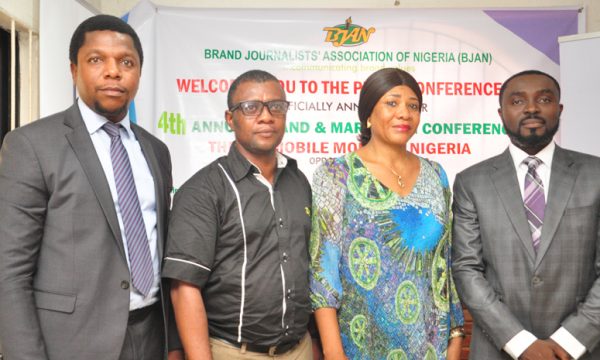In order to address excessive and multiple charges levied on customers’ account by Nigerian Banks, the Brand Journalists Association of Nigeria (BJAN) and stakeholders in the integrated marketing communication industry gathered in Lagos recently to find a lasting solution to the incessant acts.
Stakeholders who spoke at a Consumer Rights Day Symposium tagged: ‘’Banking in Nigeria: Developments and Customers Challenges’’ organized by Brand Journalists Association of Nigeria (BJAN) recently to mark the World Consumer Rights Day to address one of the worst banking customers experience.
Among the issue discussed at the event is the concern over cost of ATM withdrawals, debit card issuance and renewals fee of N1000, ATM management charges of N100 annually, Others are: New Stamp Duty charge of N50 on every credit of over N1000, online transfer charges, reintroduction of COT under a new guise as Monthly Account Maintenance Charge of N1/mille, and other levy by default too many on consumers without the chance to negotiate.
Speaking at the event, the Chairman of TPT, a leading public relations agency, Mr. Tokunbo Modupe, who was the key speaker at the symposium said the both corporate and individual banking customers are worried by the current trends of multiple and excessive charges.
Modupe said while in year 2015 alone, Central Bank of Nigeria (CBN) investigated ‘over 6,000 complaints from banks’ customers and compelled banks ‘to refund the sum of over ₦6.2 billion to affected customers’, the apex bank however, failed to state the total amount claimed by customers, whether or not the affected customers were satisfied or not with the amount refunded and whether the culprit banks were sanctioned.
He said such information would have assisted in appreciating the convergence or divergence of what was claimed and what was refunded, the feelings of the claimant customers about the final outcome of their complaints, and CBN’s ‘resolve’ to continuously enforce the provisions of the Revised Guide to Bank Charges.
“Of course, there have been many complaints by customers of banks about unauthorized and illegal charges. Such fleecing of the customers has become the rule rather than the exception. The excesses come under different descriptions such as management fees, processing fees, interest charges, commission on turnover, card maintenance fees, account maintenance fees, deposit, withdrawal and transfer telephone alert fees, and ATM fees.
‘’Even the recently introduced stamp duty charge has become another source through which they have commenced overcharging their customers. In one transaction, some banks send more than two text message alerts and charge for each. The banks, for reasons, such as greed, moral and professional bankruptcy, have often chosen to be the proverbial dogs eating the meat kept in their care. This has of necessity built distrust in the banks or the banking industry. This has had adverse implications for CBN’s programme of financial inclusion as well as the volume of money outside the banking system and effectiveness of monetary policy,” he said.
Also, the President of CAFON, Mrs. Sola Salako, who rallied consumer advocacy groups penultimate week for a NoBankingDay protest, said banking customers should expect more shock as CBN is about to release banking charges for the next three years.
She said from the draft copy published on CBN website, the annual card maintenance fee has now been brought back as monthly fee. “I plead to Nigerians to take time out to study the draft and start a conversation about it. This is the time for all of us to stand up against these,” she said.
Meanwhile, the President of Bank Customers Association of Nigeria, Dr. Uju Ogubunka, said banks should not be blamed for excessive and multiple charges. Uju said though he is against such charges but customers should be blamed because they don’t take their time to read the guides to banking.
“The problem is with customers. Most people don’t know there is a guide to bank charges but they all know when they are overcharged. Most customers don’t know their brand manager,” he said.




